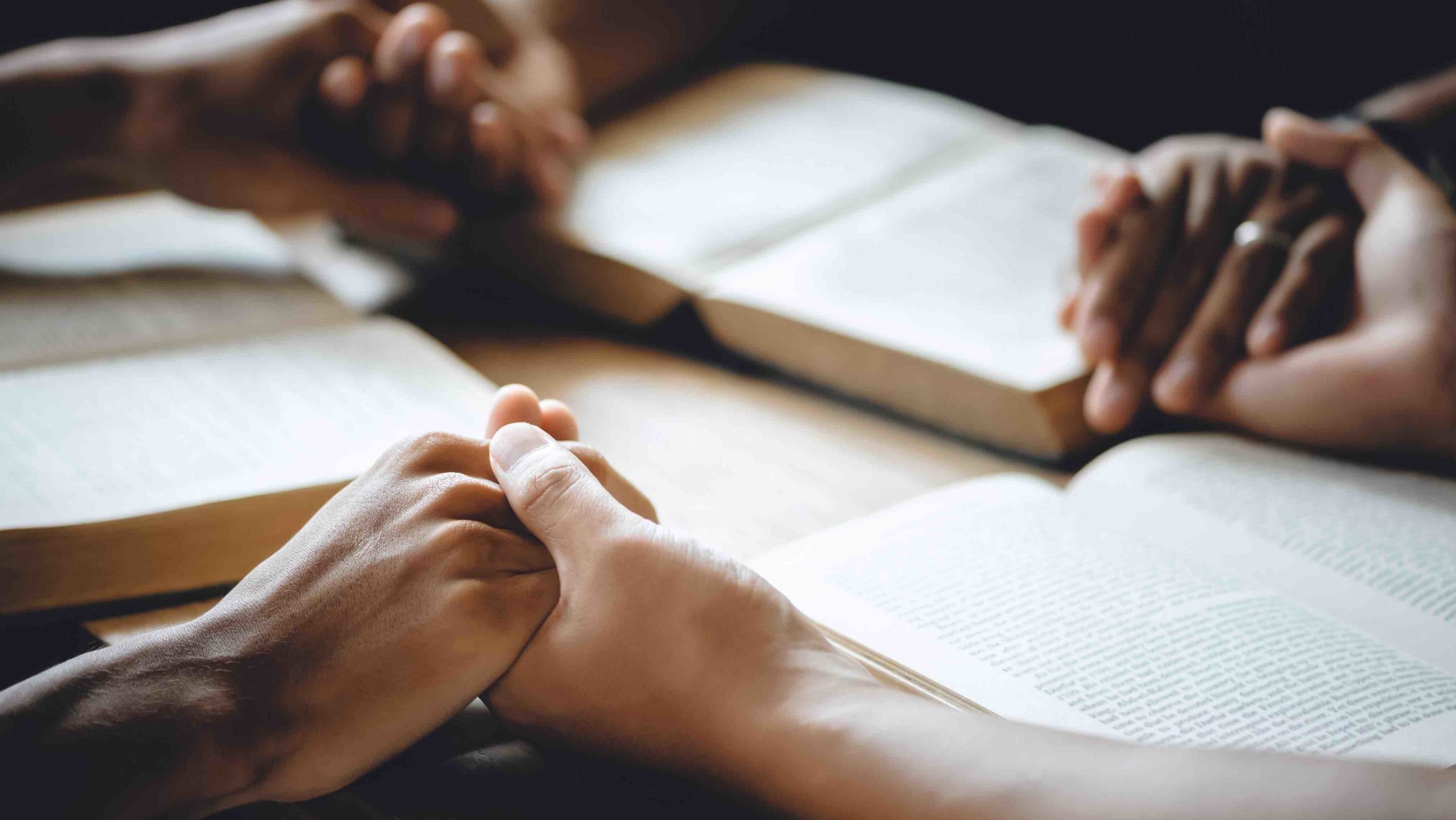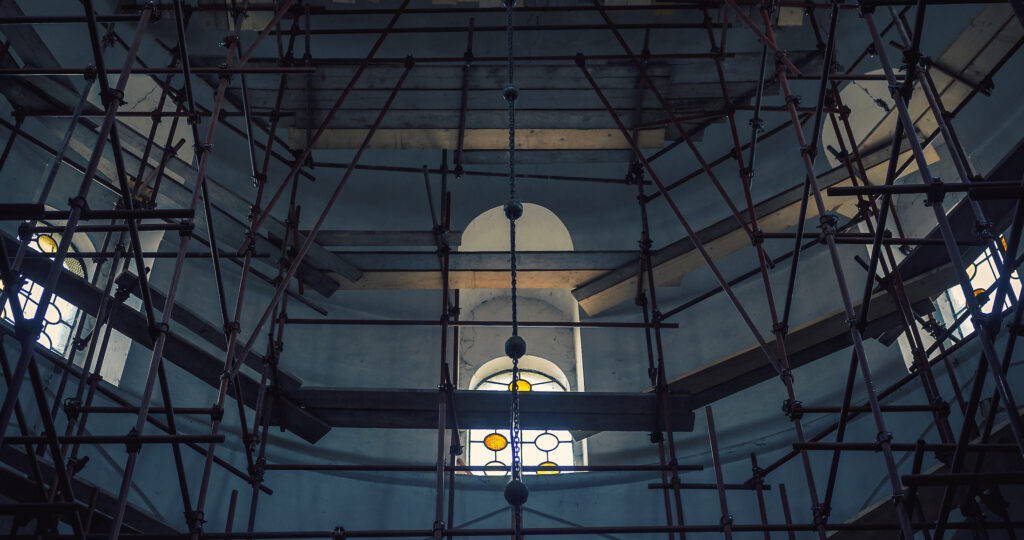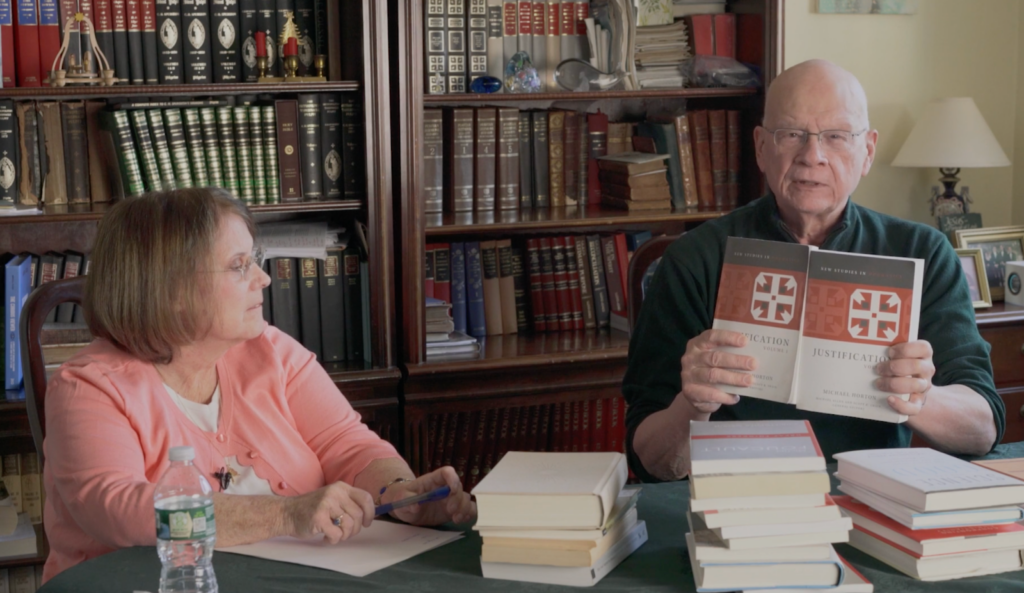During my hospitalization with COVID, I summoned up the courage to ask my attending physician something I’d been wondering ever since I tested positive.
“Doctor,” I began, taking a deep breath. “I want to know something—I want you to be honest with me. Can you tell me what my chances are of surviving this?”
His eyes seemed to droop behind his visor, and he turned to face me, then replied gently, quietly, “Honestly, about fifty/fifty.”
“What?” I thought, shocked by his words. “Was my life going to come down to a flip of the coin? Heads or tails?”
Only a few weeks earlier in March 2020, I was hearing rumors about a mysterious virus. A busy New York City tour guide with a full schedule of tours that filled up every day of my calendar, I paid little attention. After all, I had survived 9/11; it would take more than a virus to slow me—or my vibrant city—down.
But within days, I saw Manhattan become a ghost town, as fear of the novel coronavirus swept the nation. Seeking safety, my husband and I left the city to stay with family in Florida. But rather than escaping the storm, we were headed straight into the eye of the hurricane: we were already infected with COVID-19, and I would soon be fighting for my life from a hospital bed hundreds of miles from home. At 51 years old and in solid health, my husband and I found ourselves discussing end of life issues and preparing for the worst just as we prayed for the best.
In God’s mercy, we lived. The ensuing months were spent saddled with “long-haul COVID” symptoms, which meant losing much of my hair, suffering from strange aches and pains, developing sleep issues while scarcely having the energy to move, and waiting in vain for my sense of taste and smell to return. But I also emerged from that grueling experience having gained some significant spiritual lessons. Although basic in theory, four tenants of the Christian faith took on a whole new, deeper meaning for me, and I believe they would be applicable to whatever ailment or trial you are going through, not just COVID.
The Power of Prayer
2 Corinthians 1:11 — “you also join in helping us through your prayers, so that thanks may be given by many persons on our behalf for the favor bestowed on us through the prayers of many.”
We pulled up to the emergency entrance after days of vomiting while my blood pressure took a nose-dive. I tested positive, resulting in instant banishment into a quarantined room. I pulled out the computer from my backpack and spent three hours asking individuals, community groups, and church prayer lines to pray for me. Immediately, texts, voicemails, and emails of prayers as well as messages on social media poured in.

I literally felt the prayers from many invade my hospital room. Surrounded by prayer and the Holy Spirit, I felt as snug as the hospital blankets that kept me warm. And never did I once feel alone. As each experimental medication proved ineffective or gave me debilitating side effects, I knew prayer was more potent, which gave me a huge amount of comfort. There were times when I retreated into my mind, hallucinated, and even drifted in and out of consciousness, making it challenging to pray. But I held onto Romans 8:26, “In the same way, the Spirit comes to help our weakness. We don’t know what we should pray, but the Spirit himself pleads our case with unexpressed groans.” I knew that the Spirit was carrying me during these times, interceding for me when I couldn’t concentrate.
The Bible exhorts us to pray for each other. Don’t deprive yourself the opportunity or deny others the chance to petition the Lord on your behalf. When upset or worried, we often distract ourselves from the pain through social media, watching TV, or talking on the phone. But it’s important to turn off the noise and get quiet before the Lord and beseech others to do the same. Even though I prayed regularly, it took an extreme situation to learn that when prayer was all I had, it turns out prayer was all I needed.
The Power of Practicing Hospitality
Romans 12:1— “Contribute to the needs of the saints and seek to show hospitality.” Proverbs 11:2 — “The one who blesses others is abundantly blessed; those who help others are helped.”
When I became sick with COVID, I was living in an area that had been slammed with cases. Businesses were shutting down and normal services, and service workers, were stretched thin. Deliveries were backed-up and not a reliable option, and certain items such as thermometers, Tylenol and toilet paper were sold out in several places. We couldn’t risk infecting anyone by trying to retrieve what we needed in-person, so I had to rely on others to help us.
Friends and our church support system who were willing to scour bare shelves to find food for us and then deliver groceries to our front lawn became our lifeline. A friend from college brought over protein shakes and vitamins. Another friend brought cases of Gatorade, while a church brought over home-cooked meals. Each delivery would be left at the end of the driveway, and we were happily able to retrieve each item before the ants did! When my husband had a birthday in the middle of the crisis, a couple brought over a cake, lit candles, and serenaded us with a very loud happy birthday, since 20 feet separated Brian and me from where they stood. Despite our circumstances, I had to laugh watching them sing with big masks on, holding a cake, blowing the candles out in Brian’s stead, then setting it on the ground. We were completely taken care of by the generosity and kindness — both big and small — of those who stepped in to bring us supplies, run errands we weren’t able to physically do, and listen to us when we needed an ear.
It reminded me of the importance of letting people be blessed by being a blessing. Despite our culture telling us otherwise, we can’t allow ourselves to become so self-sufficient that we lose sight of the importance of helping each other and living in community with each other. The Bible speaks volumes about the importance of living in community with other Christians (Colossians 3:12-15).
We weren’t made to live in isolation, but even in a time of social distancing and staying away from crowds, or if finances are tight, there are always ways to connect and communicate and serve a hurting individual. Providing a listening ear, making a donation to an organization addressing an area of need, or joining a team effort to alleviate suffering fulfills Jesus’ mandate to go and do likewise.
The Power of Gratitude
Colossians 2:6-7 — “So then, just as you received Christ Jesus as Lord, continue to live your lives in him, rooted and built up in him, strengthened in the faith as you were taught, and overflowing with thankfulness.”
As the virus ripped through my body, I felt a fear and dread I hadn’t ever known before. I had never experienced a health crisis before from a microscopic villain that was bent on causing as much destruction as possible. One way I was able to cycle out of negative emotions into a spirit of peace was to remember all the ways in which I’d been blessed in the midst of suffering.
I celebrated every inch forward, such as when my pulse oximeter rose from 90 to 91, when my temperature fell from 103 to 100, and when I was able to drink a full glass of liquid and keep it down. When my dehydration was alleviated through a hospital IV, I felt physically so much better that I thanked God out loud exuberantly, prompting a nurse to ask me if I was ok over the monitor.
Gratitude glorifies God, it shows obedience, and it also helps to open our eyes to see the beauty around us. Gratitude can give us peace in the midst of turmoil. Since recovering from COVID, I have made a more conscious effort to move to a position of gratitude and thankfulness even when the outcome doesn’t always match my desires.
The Power of Faith
“My mind and my body may grow weak, but God is my strength; he is all I ever need” (Psalm 73:26).

One day, whether it’s by a pandemic or something else, my time on earth will end. At the worst of my COVID illness, I did think that potentially this was how God was going to call me home, and I felt strongly I wanted to go with faith, hope and courage instead of fear, bitterness and despair. But even when I was out of immediate danger and had begun the long road to recovery, I felt broken physically and mentally. Every day felt like a roller coaster ride of emotions, rocketing from straightaways of gratitude into curves of frustration, climbing steep heights to jubilation and then plunging unexpectedly back into sorrow—and then starting all over again. How could I best access my faith and even strengthen it when I felt so broken and didn’t know exactly what lay ahead?
Turning to the Bible during a time of emotional upheaval is constructive, since the Bible is full of passages that speak to suffering, alienation, and deliverance. We are assured that our brokenness is where He meets us in His strength through chapters such as Psalm 116 and verses such as Psalm 34:18, which states, “The Lord is close to the brokenhearted and saves those who are crushed in spirit.” As Dr. Keller says in his book The Reason for God, “Christianity does not provide the reason for each experience of pain, but it does provide deep resources for actually facing suffering with hope and courage rather than bitterness and despair.”
After my second week of fighting to live as the virus waged war against me, I felt weak and spent. Someone who called to pray for me got an earful:
“Kathryn, I really, really wish I could know how this is all going to end. Like, I wish I could just fast-forward a month and know how all this plays out. Did I survive? It’s almost like I want to see into the future to know if I’m still alive, so I can quit worrying now. I want to know how the book will end or not end right now, and the book is me!”
“But that’s what faith is for,” Kathryn gently countered. “To have faith that God’s got this, he knows the future, and he’s in control.”
I contrasted Kathryn’s response with the doctor’s prediction, and realized that there’s no fifty/fifty with God. God is sovereign over this. He has assured us humans that we will suffer on this earth, but He is there for us in the midst of it and He will be victorious in the end—no matter the earthly outcome. The Bible teaches that the world is not our home. Our earthly roots should be in Christ alone, because our final citizenship is in heaven. As a result of that assurance, we can stand firm in our faith and praise His name no matter what storms may rage around us.
Conclusion
The fall-out from the pandemic is vast. It has shut down normal life, and many have been afflicted with the virus and/or have lost friends or loved ones to it. But whether it’s a pandemic, another health issue, or another genre of calamity, everyone faces challenging periods full of pain.
As Christians, we don’t have to capitulate under suffering. It shouldn’t take a pandemic to remind us of the importance of prayer and gratitude, helping others or living as Christians in community. But when such adversities rear their head, our faith assures us that Jesus will be with us, just as he promised.
I have learned many lessons through this experience, but this is the most important:
We need the Lord, and we need each other. We are better together.
And for those who believe in Christ, there’s literally light at the end of the tunnel: “For our light and momentary troubles are achieving for us an eternal glory that far outweighs them all” (2 Corinthians 4:17).
Christina Ray Stanton is a Florida native who has lived and worked in New York City for almost 30 years. In 2017, she founded a nonprofit called Loving All Nations, which helps the world’s poor and vulnerable. Christina has also written two books. www.christinaraystanton.com.




